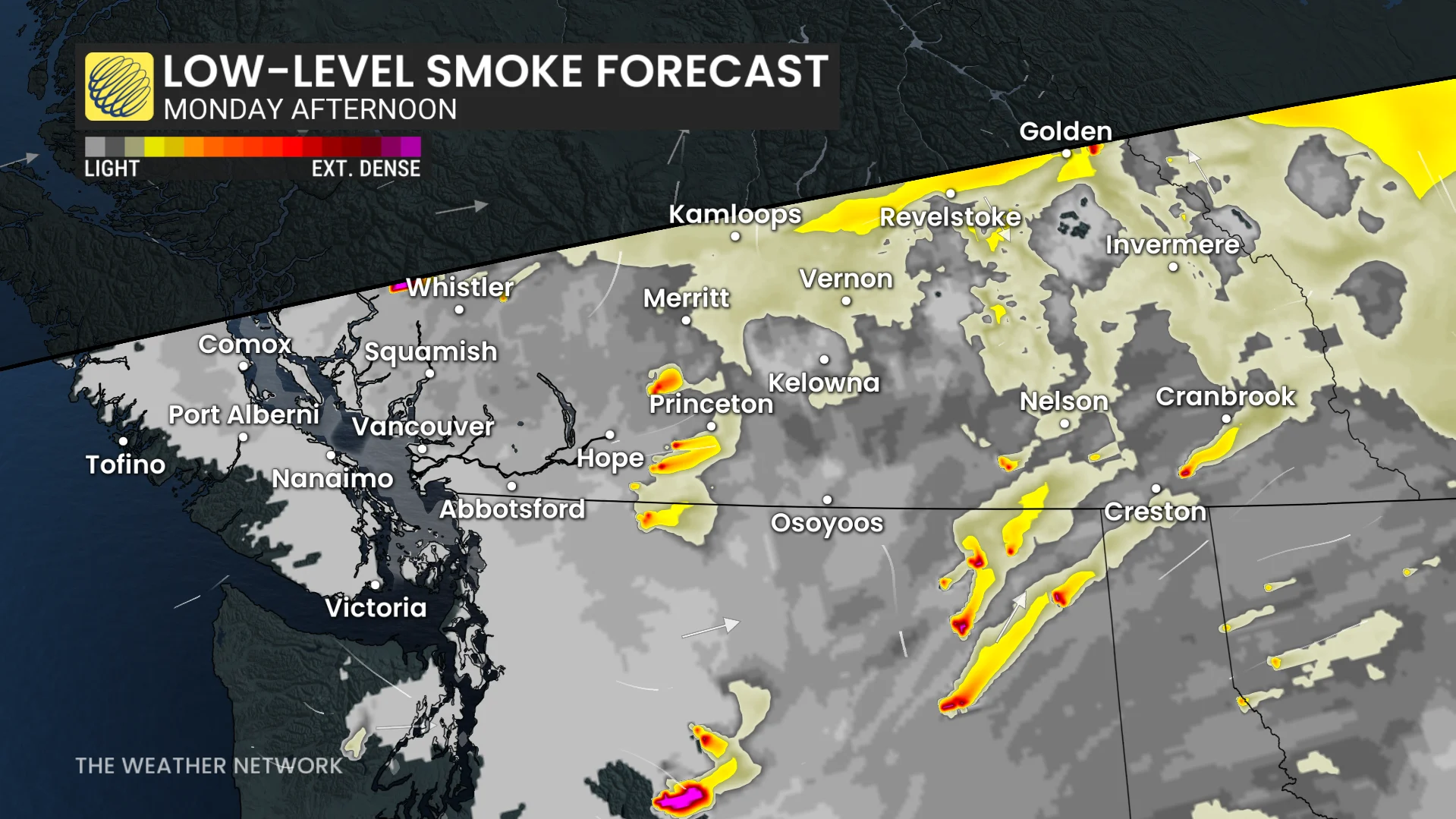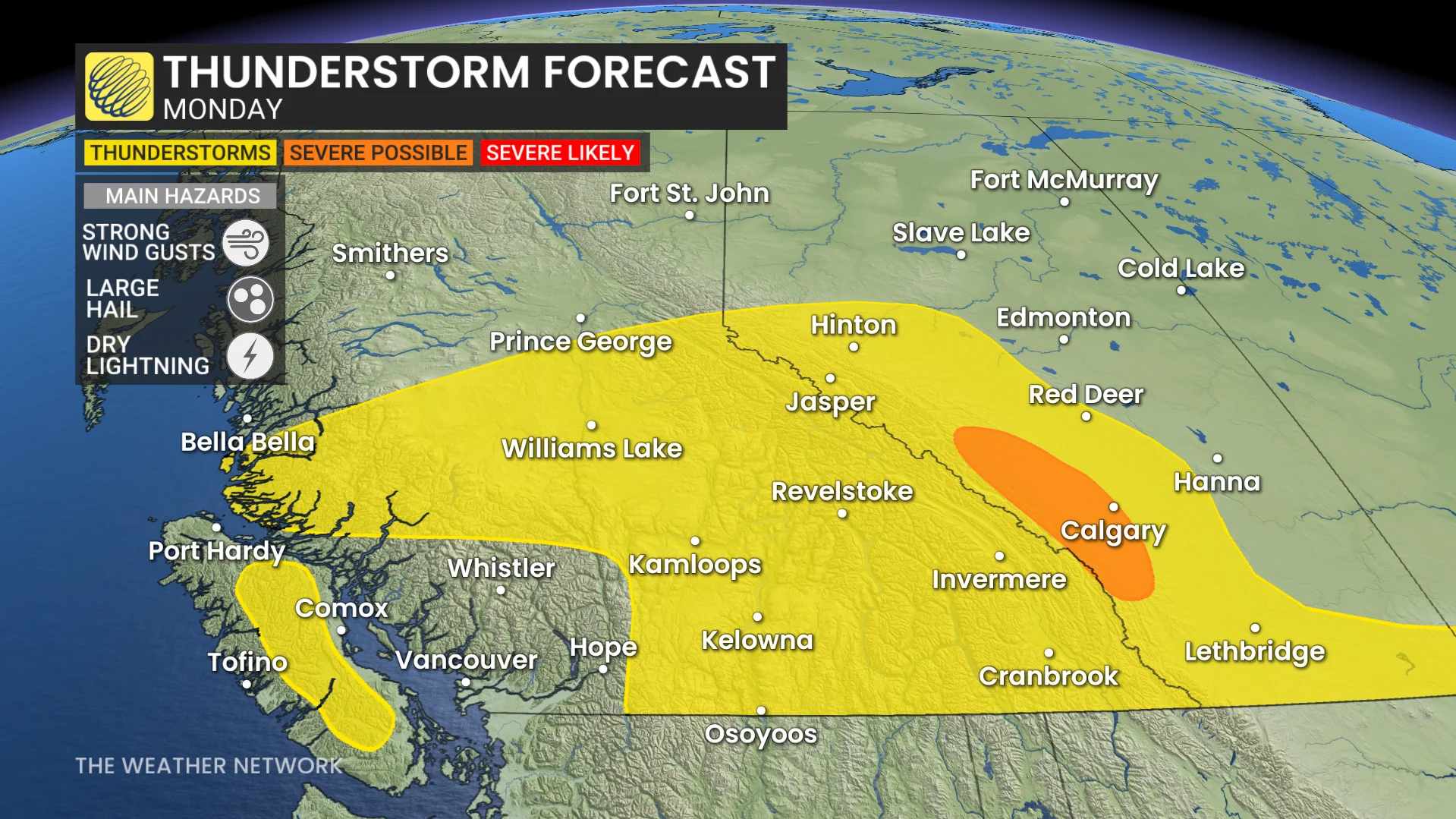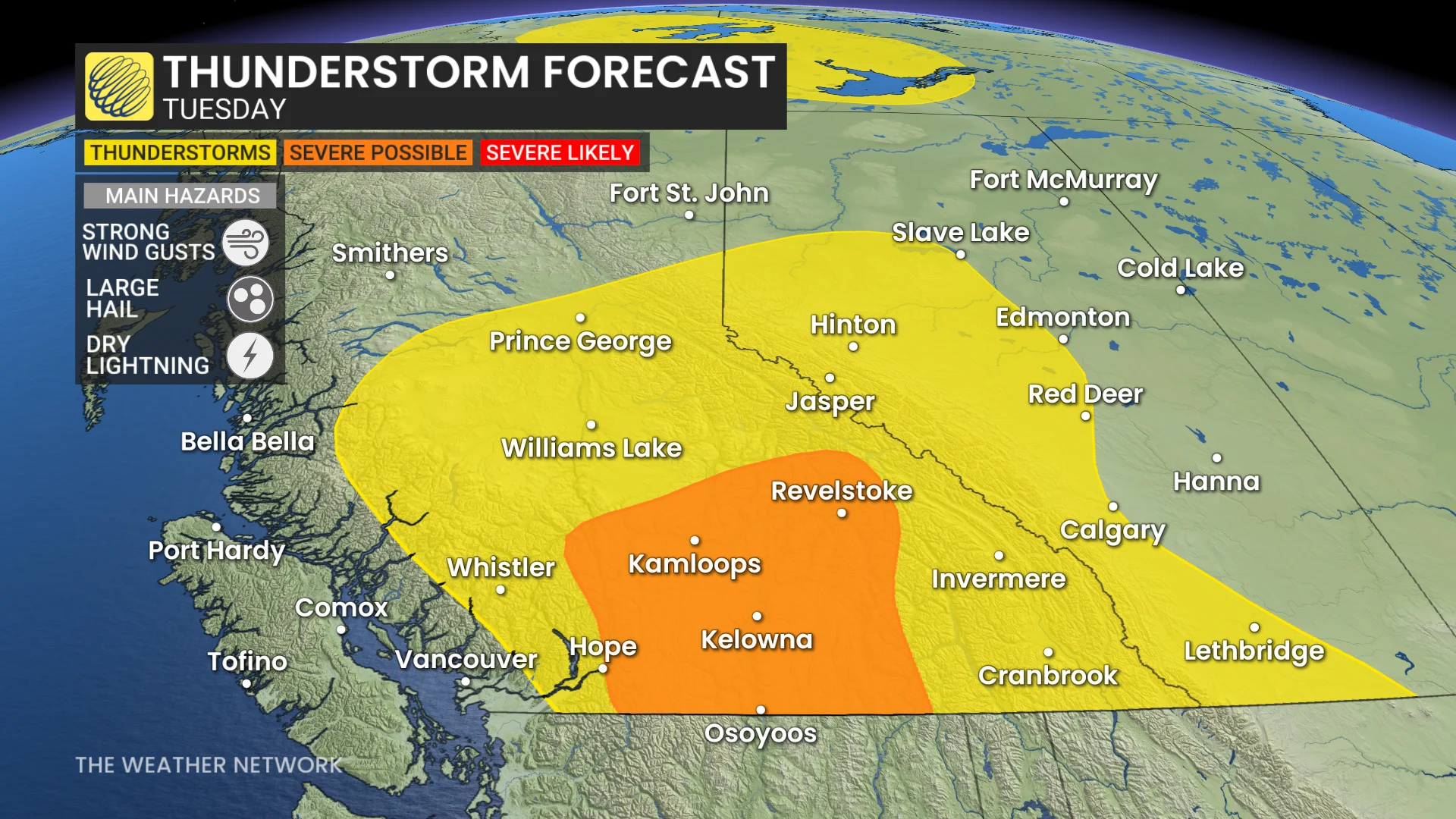
A smoky thunderstorm setup hits B.C. and Alberta Monday
Severe storms possible Monday in parts of B.C. and Alberta, with lightning risk for new wildfires
Wildfire smoke and thunderstorms) continue to affect parts of Western Canada as the workweek begins. Lightning remains a concern across British Columbia and Alberta, as new strikes may spark additional wildfires.
RELATED: Vancouver broke an unexpected weather record this week
This year, B.C. and Alberta combined have seen over 1.4 million hectares burned, contributing to roughly 17 per cent of Canada's total area burned in 2025.

As of Sunday, B.C. was home to the largest fires in the region.
The Itcha Lake wildfire has burned more than 40,000 hectares, while the Mine Creek fire has consumed around 3,000 hectares. Numerous smaller fires are also active throughout the area.

Folks across the region will have to stay alert for lightning strikes that could spark additional wildfires this week.
More smoke and a thunderstorm risk into Tuesday
Heavy smoke from ongoing fires has been a significant hazard for much of Western Canada in recent days, with many communities seeing air quality health indices reach 10 at times.

Similar smoky conditions are expected Monday, accompanied by scattered thunderstorms.
DON'T MISS: Get the latest wildfire news and safety tips to help you stay safe
While most storms will remain non-severe due to modest instability, heavy rainfall, small hail, and frequent lightning are possible from pulse-like thunderstorms triggered by a weak upper-level disturbance.

Temperatures on Monday will remain above seasonal in the Interior valleys and across much of Alberta, reaching the upper 20s. In northern B.C. and northern Alberta, temperatures will be more than 10°C above seasonal due to a stagnant ridge keeping conditions warm throughout the week.
Air quality impacts will extend into southern Alberta on Monday.

By Tuesday, similar weather patterns will persist, with slightly more thunderstorm energy expected in B.C.'s Okanagan.
This could result in isolated severe storms during the late afternoon and evening. However, wildfire smoke in the area may limit thunderstorm coverage and intensity by stabilizing the atmosphere.

Stay updated on air quality alerts and lightning risks as conditions evolve.
WATCH: Wildfire smoke wafts across Western Canada, impacting air quality
Stay with The Weather Network for all the latest on conditions across Western Canada.
